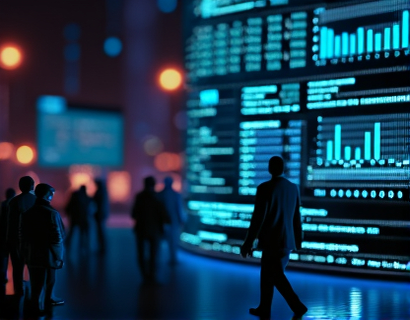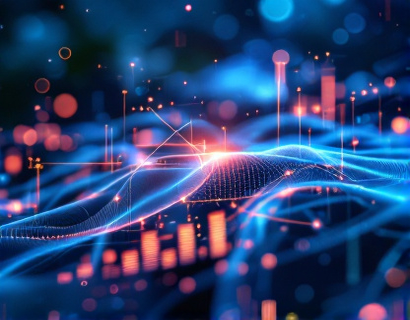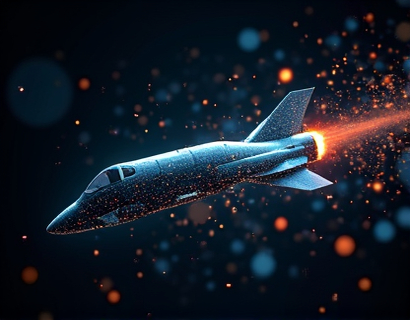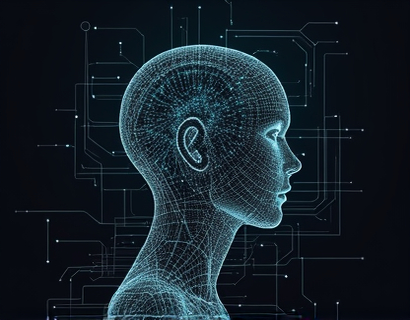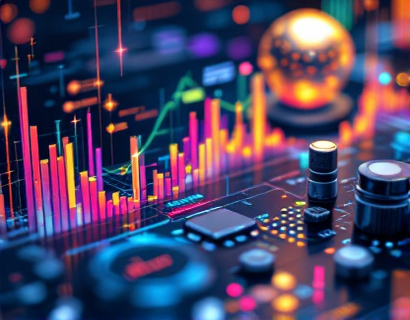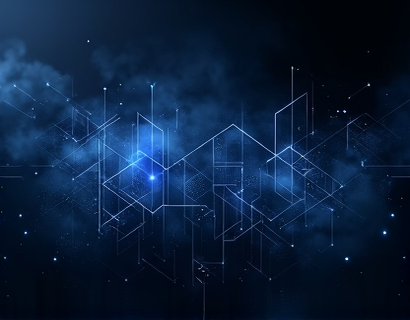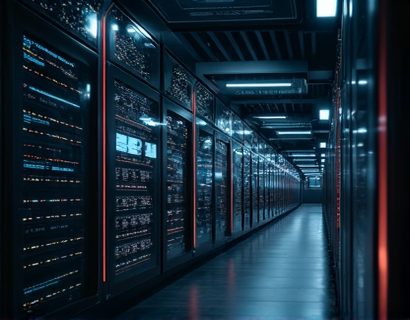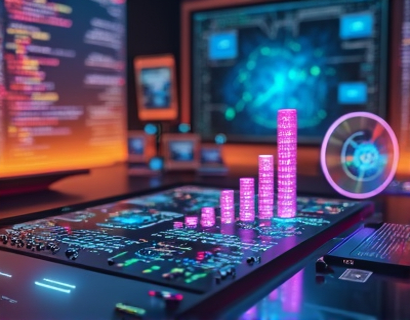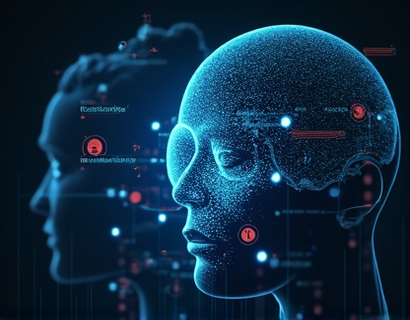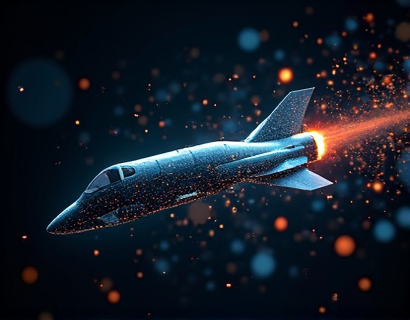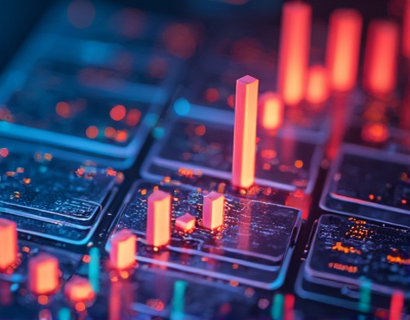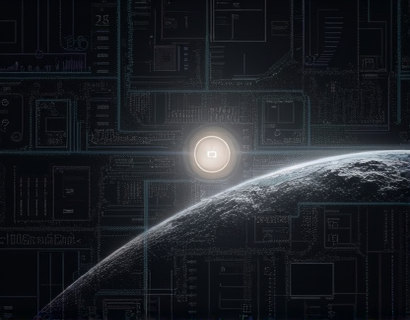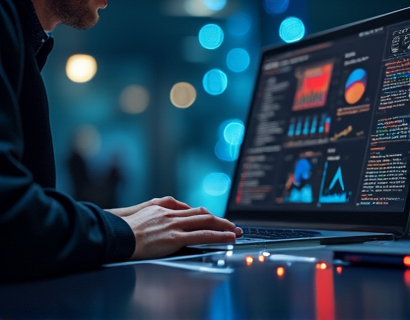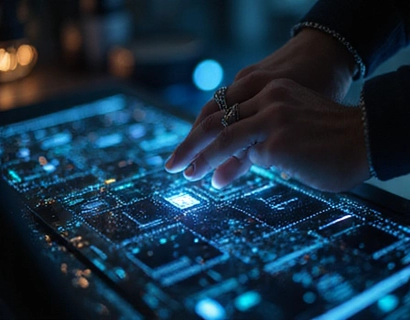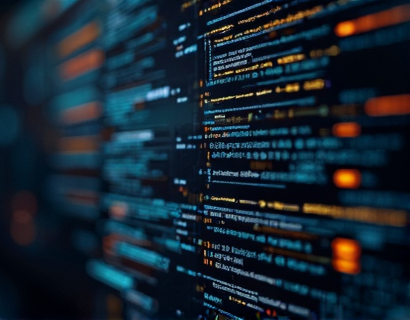CryptoAI Convergence: Exploring the Future of Finance and Technology
The intersection of cryptocurrency and artificial intelligence (AI) is revolutionizing the financial landscape, creating a new paradigm known as CryptoAI Convergence. This convergence represents a synergy where the decentralized, transparent, and secure nature of cryptocurrencies meets the advanced computational capabilities and learning algorithms of AI. For tech-savvy innovators and enthusiasts, this fusion opens up a world of possibilities, innovations, and transformative potential. This article delves into the future of finance and technology, offering a comprehensive exploration of this dynamic convergence.
Understanding CryptoAI Convergence
The term CryptoAI Convergence refers to the integration of AI technologies into the cryptocurrency ecosystem. This integration enhances various aspects of blockchain technology, from transaction processing and security to predictive analytics and smart contract execution. AI algorithms can analyze vast amounts of data to identify patterns, predict market trends, and automate complex decision-making processes. In the context of cryptocurrencies, this means more efficient, secure, and intelligent financial systems.
Enhanced Security through AI
One of the most significant benefits of CryptoAI Convergence is the enhancement of security measures in the cryptocurrency space. Traditional cybersecurity methods often struggle to keep pace with sophisticated cyber threats. AI, however, can dynamically adapt to new threats by learning from past attacks and continuously updating its defenses. For instance, AI-powered systems can detect and mitigate fraudulent transactions in real-time, reducing the risk of hacking and enhancing the overall security of blockchain networks.
Moreover, AI can improve the security of private keys and wallet management. Machine learning algorithms can analyze user behavior to identify unusual activities and alert users to potential security breaches. This proactive approach to security is crucial in a domain where the stakes are high, and the consequences of a breach can be devastating.
Optimized Transaction Processing
Transaction processing is a critical aspect of cryptocurrency operations. Traditional blockchain networks often face scalability issues, leading to slow transaction times and high fees. AI can optimize these processes by predicting network congestion, dynamically adjusting consensus mechanisms, and streamlining transaction validation. For example, AI algorithms can prioritize transactions based on factors such as urgency, size, and frequency, ensuring that critical transactions are processed more efficiently.
Additionally, AI can enhance the development of second-layer solutions like sidechains and state channels. These solutions aim to offload transactions from the main blockchain, reducing congestion and lowering fees. AI can optimize the parameters of these solutions, ensuring they operate at peak efficiency and compatibility with the main chain.
Predictive Analytics and Market Insights
AI-driven predictive analytics is transforming the way traders and investors approach the cryptocurrency market. By analyzing historical data, market trends, and real-time news feeds, AI can provide insights that help users make more informed decisions. This includes predicting price movements, identifying potential market trends, and assessing the impact of various factors on cryptocurrency values.
For instance, AI models can analyze social media sentiment, news articles, and economic indicators to gauge market sentiment and predict price fluctuations. This level of insight is invaluable for both individual traders and institutional investors, enabling them to strategize more effectively and manage risk more efficiently.
Smart Contracts and Automated Processes
Smart contracts are self-executing contracts with the terms of the agreement directly written into code. The integration of AI into smart contracts can significantly enhance their functionality and reliability. AI can automate complex decision-making processes, execute conditional logic, and adapt to changing circumstances in real-time. This means that smart contracts can handle more intricate and dynamic tasks, reducing the need for intermediaries and lowering transaction costs.
For example, AI can be used to create adaptive smart contracts that adjust their parameters based on market conditions or user behavior. This flexibility makes smart contracts more versatile and applicable to a wider range of use cases, from decentralized finance (DeFi) applications to supply chain management.
Personalized Financial Services
The convergence of CryptoAI opens up new possibilities for personalized financial services. AI can analyze individual user data to provide tailored financial advice, investment recommendations, and risk assessments. This level of personalization is particularly beneficial in the decentralized finance (DeFi) space, where users can access a variety of financial products and services without traditional intermediaries.
For instance, AI-powered financial assistants can help users manage their crypto portfolios, optimize tax strategies, and plan for long-term financial goals. These assistants can also provide real-time alerts and notifications, keeping users informed about market changes and potential opportunities.
Challenges and Considerations
While the potential of CryptoAI Convergence is vast, it is not without its challenges. One of the primary concerns is the regulatory landscape. The rapid evolution of both cryptocurrency and AI technologies often outpaces regulatory frameworks, leading to uncertainty and compliance issues. It is crucial for developers and businesses to stay informed about regulatory changes and ensure their solutions comply with local and international laws.
Another challenge is the technical complexity involved in integrating AI with blockchain technology. Developing robust and efficient AI models that can operate within the constraints of blockchain networks requires expertise in both domains. Collaboration between AI researchers, blockchain developers, and financial experts is essential to overcome these technical hurdles.
Future Prospects
The future of CryptoAI Convergence holds immense potential. As AI technologies continue to advance, we can expect even more innovative applications in the cryptocurrency space. One area of focus will be the development of more sophisticated AI models for decentralized autonomous organizations (DAOs). These models can enhance governance, decision-making, and resource allocation within DAOs, making them more efficient and democratic.
Another promising area is the integration of AI with quantum computing. Quantum computers have the potential to solve complex problems that are currently infeasible for classical computers. When combined with AI, this synergy could lead to breakthroughs in cryptography, optimization, and data analysis, further revolutionizing the financial industry.
Community and Resources
For those interested in exploring the intersection of cryptocurrency and AI, there is a growing community of tech-savvy innovators and enthusiasts. Online forums, social media groups, and specialized platforms provide valuable resources, insights, and networking opportunities. Engaging with this community can help individuals stay updated on the latest developments, share knowledge, and collaborate on projects.
Additionally, numerous online courses, webinars, and workshops are available to help enthusiasts and professionals deepen their understanding of both cryptocurrency and AI. These educational resources cover a range of topics, from the basics of blockchain and machine learning to advanced topics in decentralized finance and AI-driven trading strategies.



